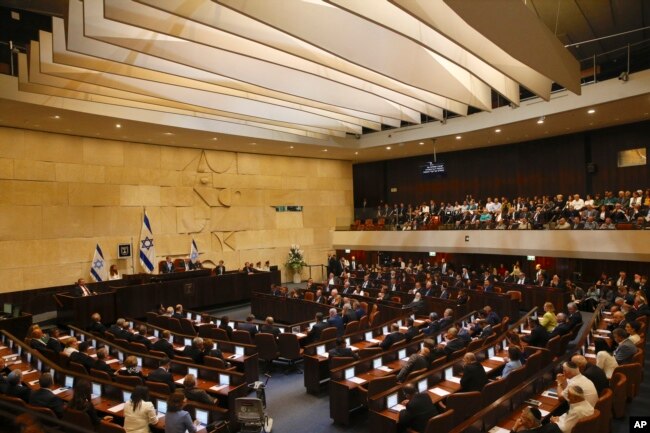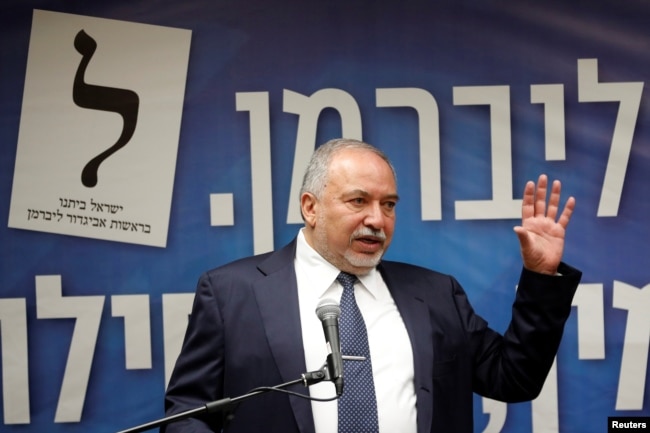Israel moved closer to new parliamentary elections Monday, with Prime Minister Benjamin Netanyahu unable to form a government after appearing on track last month to win a fifth term as leader of the Jewish state, VOA news reports.
The Israeli parliament approved a preliminary motion to dissolve itself, and if adopted a second time in a Wednesday vote, Israel would be forced to hold new elections.
After last month’s elections, Netanyahu’s ruling Likud Party emerged tied as the largest bloc in the 120-member parliament, but with traditional minor party allies appeared to be in control with a solid 65-55 majority.
His prospective coalition has been thrown into turmoil by former defense minister Avigdor Lieberman, sometimes a Netanyahu ally and sometimes a rival.
Lieberman has demanded passage of a new law mandating that young ultra-Orthodox men be drafted into the Israeli military, like most other Jewish men, while Netanyahu’s ultra-Orthodox allies have called for the current draft exemptions to remain in place.
In a prime-time statement, Netanyahu called for his potential coalition partners to put “the good of the nation above every other interest” to avoid what he said would be “expensive, wasteful” elections.
The Israeli leader said he was hopeful that a compromise could be forged before the late Wednesday deadline for him to form a new government.
But he acknowledged, “Unfortunately, I haven’t been able to convince Lieberman to avoid another election. The reality is that we must be responsible and form a government immediately.”
He said, “A lot can be done in 48 hours. The voters’ wishes can be respected, a strong right-wing government can be formed.”
Netanyahu cannot form a government without the five seats of Lieberman’s Yisrael Beiteinu party.
“The draft law has become a symbol, and we will not capitulate on our symbols,” Lieberman said, vowing to press for new parliamentary elections if his demand is not met.
Ultra-Orthodox parties consider military conscription a violation of their religious beliefs, fearing that military service will lead to secularization. But such exemptions from military service are widely resented by other Jewish Israelis.
Some Likud adherents say that Lieberman is motivated by his personal spite for Netanyahu, but Lieberman says he will not give in to religious coercion.
“I will not be a partner to a Halachic state,” he said, using the word for Jewish law.
U.S. President Donald Trump, a staunch Netanyahu ally, took note of the Israeli political impasse while on a state visit to Japan, referring to his friend by his well-known nickname, Bibi.
“Hoping things will work out with Israel’s coalition formation and Bibi and I can continue to make the alliance between America and Israel stronger than ever,” Trump said on Twitter. “A lot more to do!”
Hoping things will work out with Israel’s coalition formation and Bibi and I can continue to make the alliance between America and Israel stronger than ever. A lot more to do!
— Donald J. Trump (@realDonaldTrump) 27 мая 2019 г.


